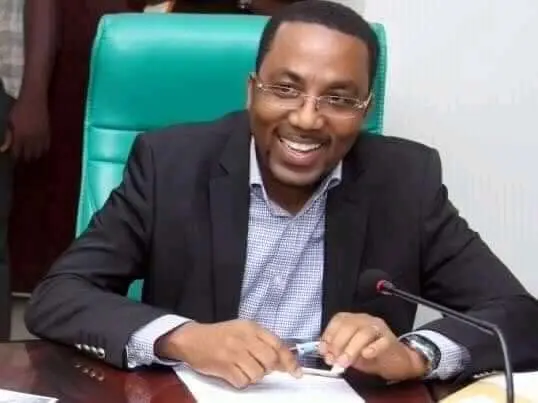By Adaku Walter
Nigerian Ports Authority (NPA) has threatened to revoke the concession agreement of five terminal operators over the purported collapse of infrastructures. It said that currently, all affected terminal operators at the nation’s seaports are under close watch to ensure they keep to all commitments and obligations as agreed under the Port Concession Agreement.
The Federal Government had in 2005-2006, entered into concession agreement for several bulk, breakbulk, and container terminals, partly on a competitive basis (13 terminals) and partly through negotiation (12 terminals).
Addressing maritime reporters on Saturday, the Managing Director of NPA, Mohammed Bello-koko, disclosed that the affected terminal operators have been granted six-month grace to enable them meet up with the condition for renewal before their concession agreement will be renewed permanently.
The NPA boss said the introduc- tion of the Infrastructure Con- cession Regulatory Commission (ICRC) Act meant that renewal of concession agreement for terminal operators is no longer done the way it used to be done.
“Tin-Can Island Port, we all know what is happening there. The port is practically collapsing. We need to focus our budget towards the rehabilitation of those quay walls at the Tin-Can port.
We have taken a holistic review of decaying infrastructures at our ports and have decided that it is very important that we rehabilitate Tin-Can and Apapa port.
“What we have done is to start talking to lending agencies, even though we don’t intend to lend. We are asking the terminal opera tors, you people have operated these port terminals for about 10 to 15 years; how much money are you going to invest in this port terminals?
We are asking some of them that their leases have expired, how much will they be investing in the ports? “For us to renew these concession agreements that have expired, about five of them, we need to have categorical commitment from the affected terminal operators on the development of these port terminals.
If the terminal operators cannot give us such commitment, then we either give the terminals to someone else or go and borrow money to rehabilitate those ports,” he said.
According to Bello-Koko, if money is borrowed to rehabili- tate those ports, then what the terminal operators are paying will have to change as the rates will have to go up.
He said of this is not done, these terminal operators will keep managing those places and the ports will keep collapsing. He noted that because of the terminal operators financial interest, they don’t want NPA to re-construct the affected port terminals because that will mean stopping them from operating.
“We have had interest from the World Bank, IFC, Afri-Exim Bank and others. Surprisingly, it was the World Bank that actually gave money to the NPA to construct part of Apapa port so many years ago.
The World Bank has come again to tell us that if we need funding, they will give it to us,” he stated.
Bello-koko while explaining the process of renewal of the port concession agreement, said the ICRC Act introduction meant that the process of renewal can no longer be done the way it used to be done. “At the point of expiration of any concession agreement, the then Legal Agreement says that the terminal operators can apply for renewal and we will renew.
It was after the conces- sion agreement that the ICRC Act came onboard. The ICRC Act requires that there should be a new owner, a new bid and so on and so forth.
Read Also: Nigerian security architecture needs review, minister affirms
So you can see there is conflict. “Again, the Minister also said that the port terminals are in their worst state; asking what is the plan of the terminal operators to invest more. Also, the NPA asked the terminal operators about their development plans for the port terminals,” he noted.
“The affected terminal operators have been given temporary extension of six months. If today, we revoke the current concession agreement and bring new people onboard, the new bidders will naturally pay the NPA far higher than what the current terminal operators are paying.
We know this, but we are not yet saying that. What we are saying is that let us sit on the table and create a concession agreement that is fair. We need an agreement that holds the terminal operators responsible for their actions,* Bello-Koko added.





